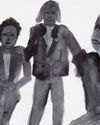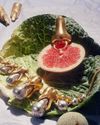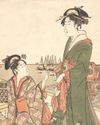As the Sundance-winning “Shirkers” makes its debut on Netflix, we speak to its director Sandi Tan and one of its stars Jasmine Ng, on the making of this film and its eventual screening, almost three decades later.

As the Sundance-winning “Shirkers” makes its debut on Netflix, we speak to its director Sandi Tan and one of its stars Jasmine Ng, on the making of this film and its eventual screening, almost three decades later.
I GREW UP in Singapore in the ’90s, coming of age in the latter half of the decade. It wasn’t easy to have fun then, so a lot of entertainment was self-created. Movies, books and albums were hard to get hold of, making them all the more precious. For the artistic soul who was not bound by the staidness of the city, the desire to experience “culture” and to create was always burning within.
Singapore was a different city then. While poised for economic greatness and still pristine on the surface, there was a sense of grittiness underneath its glossy veneer — if you knew where to look. And somewhere, a young Sandi Tan, wanted to capture the beauty and complexity of a fast-disappearing Singapore on film. Tan and her friends Jasmine Ng and Sophie Siddique, along with Georges Cardona — whom they met as an instructor at a filmmaking course in The Substation — decided to make a film. And “Shirkers” was born.
Tan wrote a script borne of her obsessions at that time, wanting to make Singapore look breathtaking on film. She also knew it was an uphill task. “I mean, of course, Singapore is flat and its tourist brochure patter was as bland as can be, so there lies the humour and the irony of my project. I was fully aware of the irony. Singapore was at a crossroads back in the early 1990s, poised between a more relaxed Southeast Asian identity and a global economic powerhouse with boundless ambition. This transformation would occur in the blink of an eye if nobody bothered to grab hold of these precious shards. And that’s exactly what I tried to do,” she explains.
هذه القصة مأخوذة من طبعة November 2018 من T Singapore: The New York Times Style Magazine.
ابدأ النسخة التجريبية المجانية من Magzter GOLD لمدة 7 أيام للوصول إلى آلاف القصص المتميزة المنسقة وأكثر من 9,000 مجلة وصحيفة.
بالفعل مشترك ? تسجيل الدخول
هذه القصة مأخوذة من طبعة November 2018 من T Singapore: The New York Times Style Magazine.
ابدأ النسخة التجريبية المجانية من Magzter GOLD لمدة 7 أيام للوصول إلى آلاف القصص المتميزة المنسقة وأكثر من 9,000 مجلة وصحيفة.
بالفعل مشترك? تسجيل الدخول

Look At Us
As public memorials face a public reckoning, there’s still too little thought paid to how women are represented — as bodies and as selves.

Two New Jewellery Collections Find Their Inspiration In The Human Anatomy
Two new jewellery collections find their inspiration in the human anatomy.

She For She
We speak to three women in Singapore who are trying to improve the lives of women — and all other gender identities — through their work.
Over The Rainbow
How the bright colours and lively prints created by illustrator Donald Robertson brought the latest Weekend Max Mara Flutterflies capsule collection to life.

What Is Love?
The artist Hank Willis Thomas discusses his partnership with the Japanese fashion label Sacai and the idea of fashion in the context of the art world.

The Luxury Hotel For New Mums
Singapore’s first luxury confinement facility, Kai Suites, aims to provide much more than plush beds and 24-hour infant care: It wants to help mothers with their mental and emotional wellbeing as well.

Who Gets To Eat?
As recent food movements have focused on buying local or organic, a deeper and different conversation is happening among America’s food activists: one that demands not just better meals for everyone but a dismantling of the structures that have failed to nourish us all along.

Reimagining The Future Of Fashion
What do women want from their clothes and accessories, and does luxury still have a place in this post-pandemic era? The iconic designer Alber Elbaz thinks he has the answers with his new label, AZ Factory.

A Holiday At Home
Once seen as the less exciting alternative to an exotic destination holiday, the staycation takes on new importance.
All Dressed Up, Nowhere To Go
Chinese supermodel He Sui talks about the unseen pressures of being an international star, being a trailblazer for East Asian models in the fashion world, and why, at the end of the day, she is content with being known as just a regular girl from Wenzhou.